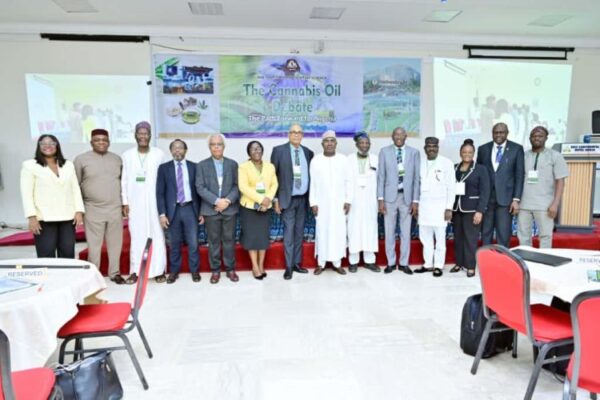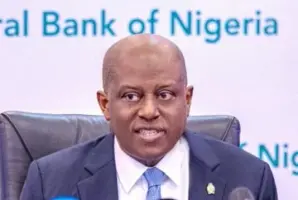The Chairman of the National Drug Law Enforcement Agency, Buba Marwa, said the agency is in support of a controlled and regulated export of cannabis oil to countries that desire it, but reiterated the stance against its local consumption.
According to a statement by the agency, Marwa stated this while speaking at a stakeholders workshop themed “Cannabis Oil Debate: The Path Forward for Nigeria”, organised by the Nigerian Academy of Science in Abuja on Wednesday. Marwa said the dialogue on cannabis oil is a welcome development.
“At NDLEA, our position on cannabis oil is simple: we welcome dialogue. We believe Nigeria must make informed choices, not choices driven by half-truths, commercial interests, or global trends. Cannabis oil may have medicinal properties worth investigating, but it also carries health risks, potential for misuse, and implications for public safety. This is why it is crucial that scientists, medical experts, policymakers, and regulators are in the same room to bring facts to the table, scrutinise evidence, and weigh options carefully.
“Let me assure you that NDLEA is not opposed to science, nor are we indifferent to innovation. What we insist on is caution. Policy must protect lives, safeguard public health, and strengthen—not weaken—our fight against drug abuse. As such, the Agency will not be averse to the idea of controlled export of cannabis oil to foreign companies and countries that desire it, as part of our drive as a country to enhance foreign earnings. After all, some countries have approved the use of cannabis oil for therapeutic purposes, while others, including Nigeria, have not. Our concern, however, is about its consumption in Nigeria. In essence, we are not opposed to the idea of exporting the oil to those who desire it, but such must be strictly controlled, licensed and monitored by NDLEA with such process located only within export free zones”, he stated.
The NDLEA boss expressed why the conversation is necessary, saying, “We are talking about Cannabis, which is not just another plant.”
Marwa said, “cannabis is a substance with complex medical, social, and economic dimensions, For decades, the debate has been one-sided.”
“Advocates often highlight the supposed benefits of cannabis oil, while its risks and consequences are glossed over. This, no doubt, informs the decision by us at the NDLEA to commission an ongoing study on cannabis oil by this respected apex body of scientists, the Nigerian Academy of Science,” he added.
“In a country like Nigeria, which is already contending with a high burden of drug abuse, it is imperative that we approach this matter with sobriety, clarity, and balance. Till today, much of the public debate highlights the potential therapeutic uses of cannabis oil and the commercial value of its export. What about the risks? Evidence shows that cannabis, including its oil extracts, can have adverse effects on mental health, especially among young people.
Read Also
- NDLEA Arrests 80-Year-Old Ex-Convict Uncovers Drugs In Mannequins
- NDLEA Arrest Ex-Convict, Three Others Over UK-Bound Cocaine Shipment Disguised In Starch Sachet
- Lagos Mother Stashes 23.50kg Cocaine Worth N5b In Children's Room - NDLEA
- NDLEA Secures Court Order To Detain Cocaine-laden Vessel, 21 Crew Members Over Shipment From Brazil
“The prolonged or uncontrolled use of cannabis and its extracts is linked to anxiety, depression, psychosis, and cognitive impairment. In addition, dependence and addiction are real concerns as well. In reality, these side effects create additional social and economic costs for families, communities and society at large.
“Another fundamental issue that we must take cognisance of is that the lack of standardised production and regulation in many countries means products sold as “cannabis oil” often vary in potency, contain contaminants, or are misused outside of medical supervision. Already, Nigeria has one of the highest rates of misuse of cannabis worldwide.
“For a country already grappling with a 14.4 per cent substance abuse prevalence rate as against the global average of 5.6 per cent and a staggering figure of 10.6 million cannabis users based on the last drug use survey report of 2018, the risks associated with cannabis cannot be dismissed. Rather, the reality should remind us that while cannabis oil may have medical potential, its dangers are real and must be addressed with strong safeguards before any policy shift is considered,” he expressed.
Marwa reflected on the policies put in place by the agency as part of efforts to mitigate the consequences of illicit drug cultivation and production. The decision by the Agency, as the first in Africa, to introduce an alternative development project in 2023.
According to him, “The Alternative Development Project demands ethical responsibility and commitment to develop transformative policies and humanitarian responses to mitigate drug-related problems and end the complexities and violence of the war on drugs in Nigeria and globally. In Nigeria, the Alternative Development Project will focus on reducing the vulnerabilities of ignorance, poverty, hunger, unemployment and underdevelopment that push people into illicit economies, particularly illicit drug cultivation.
“Aside from its link to transnational organised crime, illicit drug cultivation fuels national organised crime that causes agricultural states to abandon food crop cultivation for cannabis plantations in some communities across Nigeria. We intend to reduce these vulnerabilities both in urban centres and rural areas through the provision of functional mechanisms and facilities for sensitisation, skills acquisition, empowerment and positive engagements for sustainable livelihoods.”
In his welcome remark, President of the Nigerian Academy of Science, Prof Abubakar Sambo, who was represented by the Vice President of NAS, Prof Friday Okonofua, noted that several research studies have considered various uses of cannabis and its side effects. He said the workshop was aimed at reaching a consensus on the contentious issue of the use of cannabis oil.
“At the end of the day, we’ll have evidence-based consensus work, which will be properly documented, that will lead us to decide what we should be doing regarding the use of cannabis in this country”, he stated.





